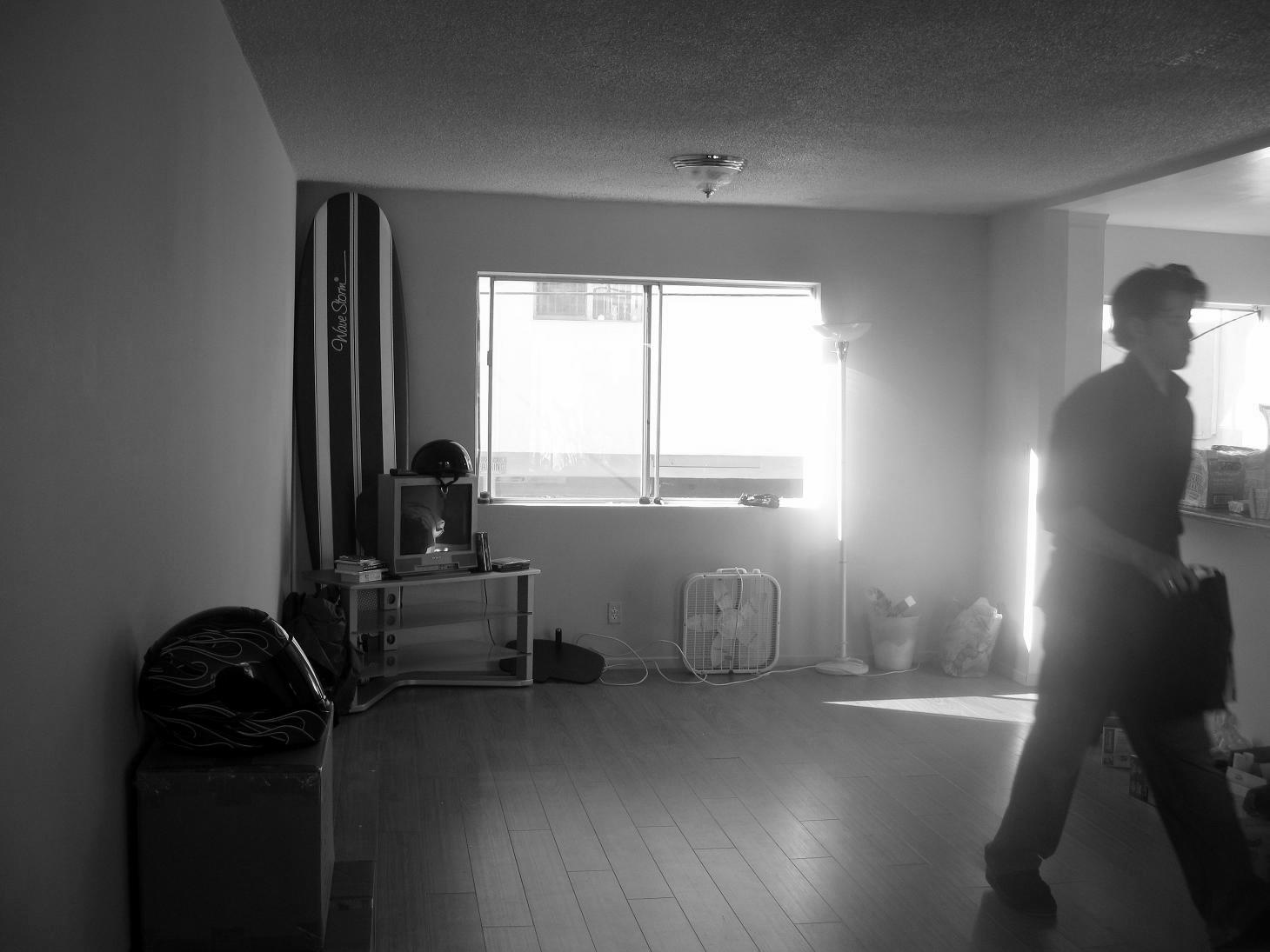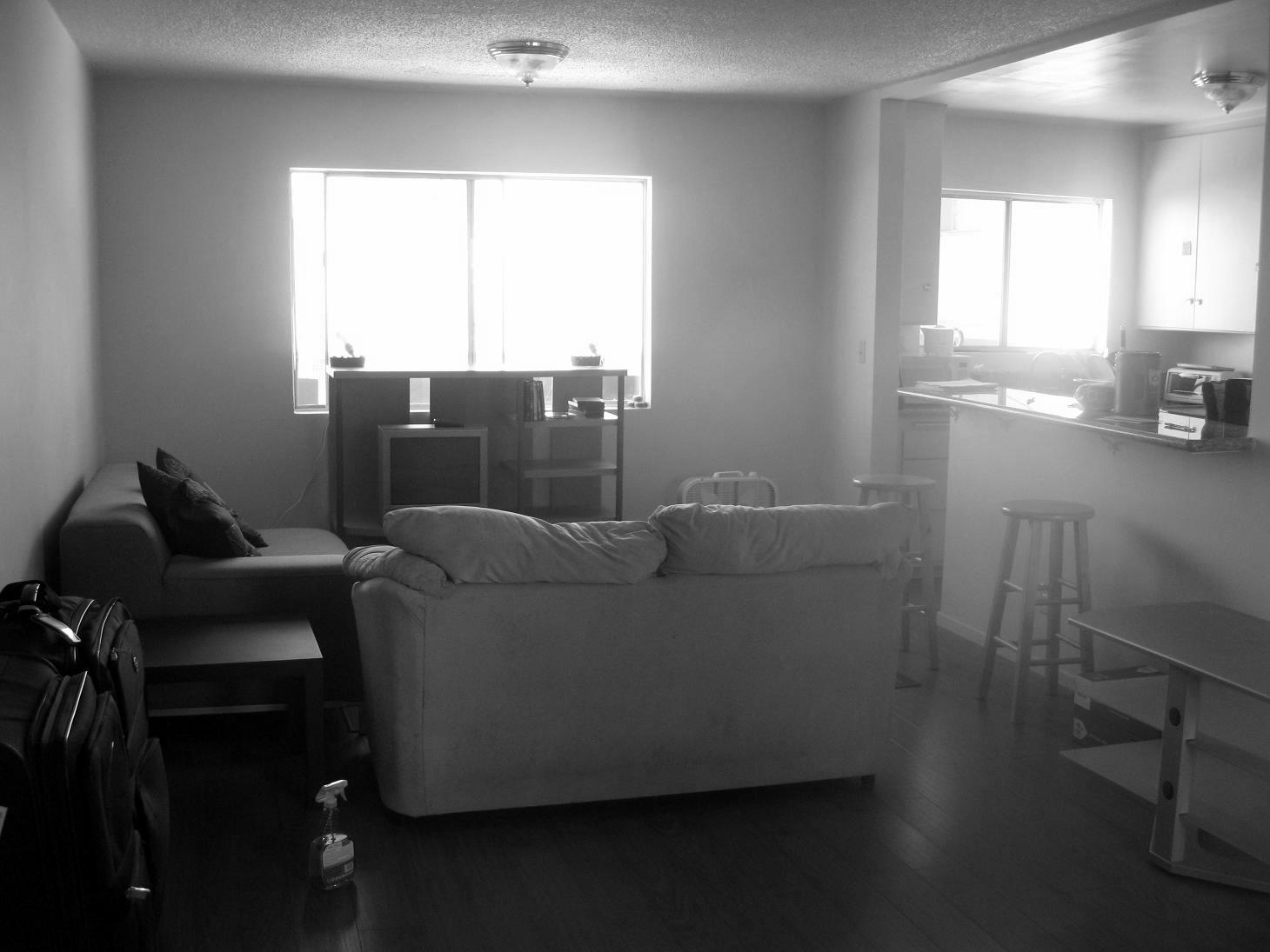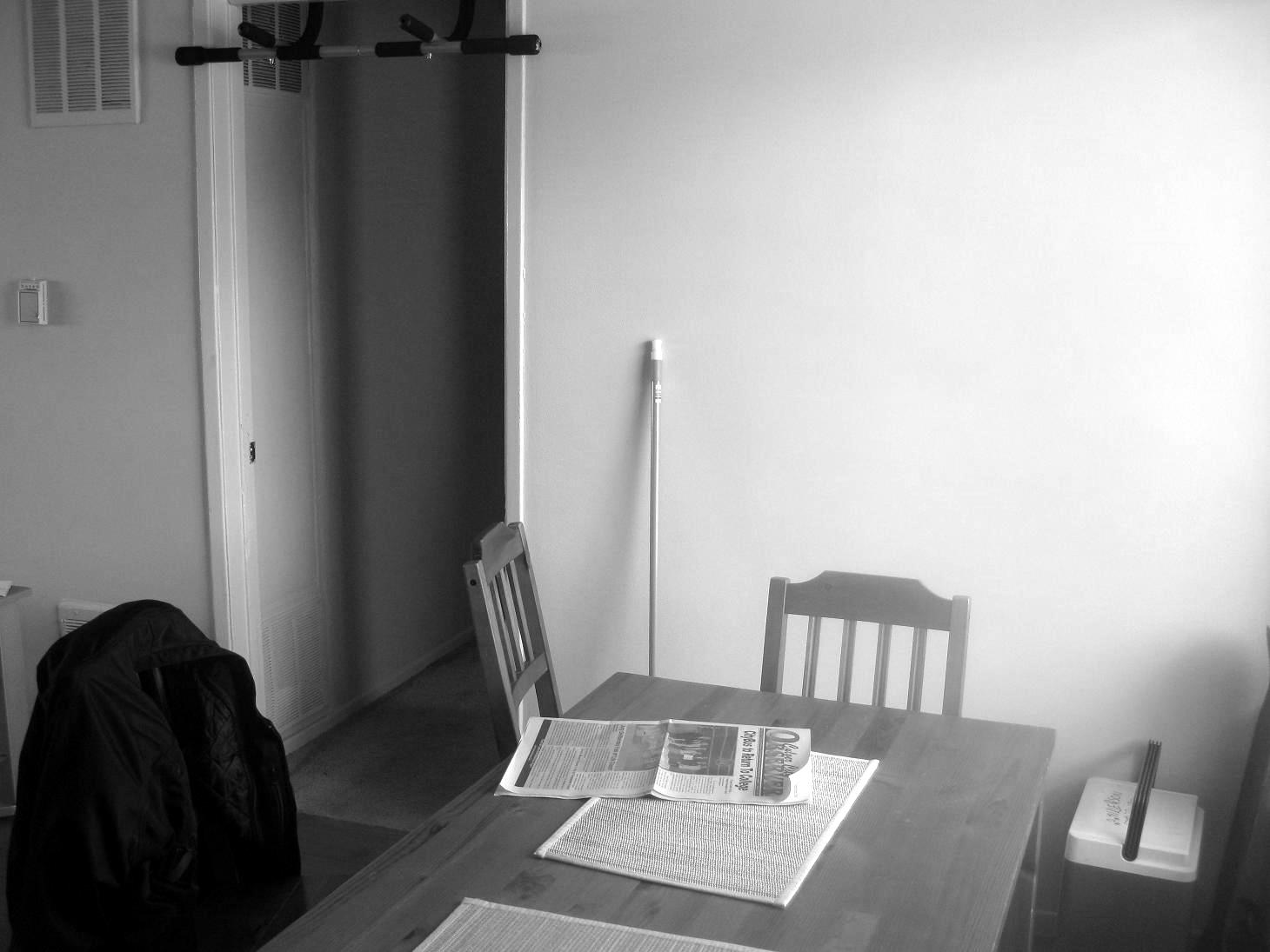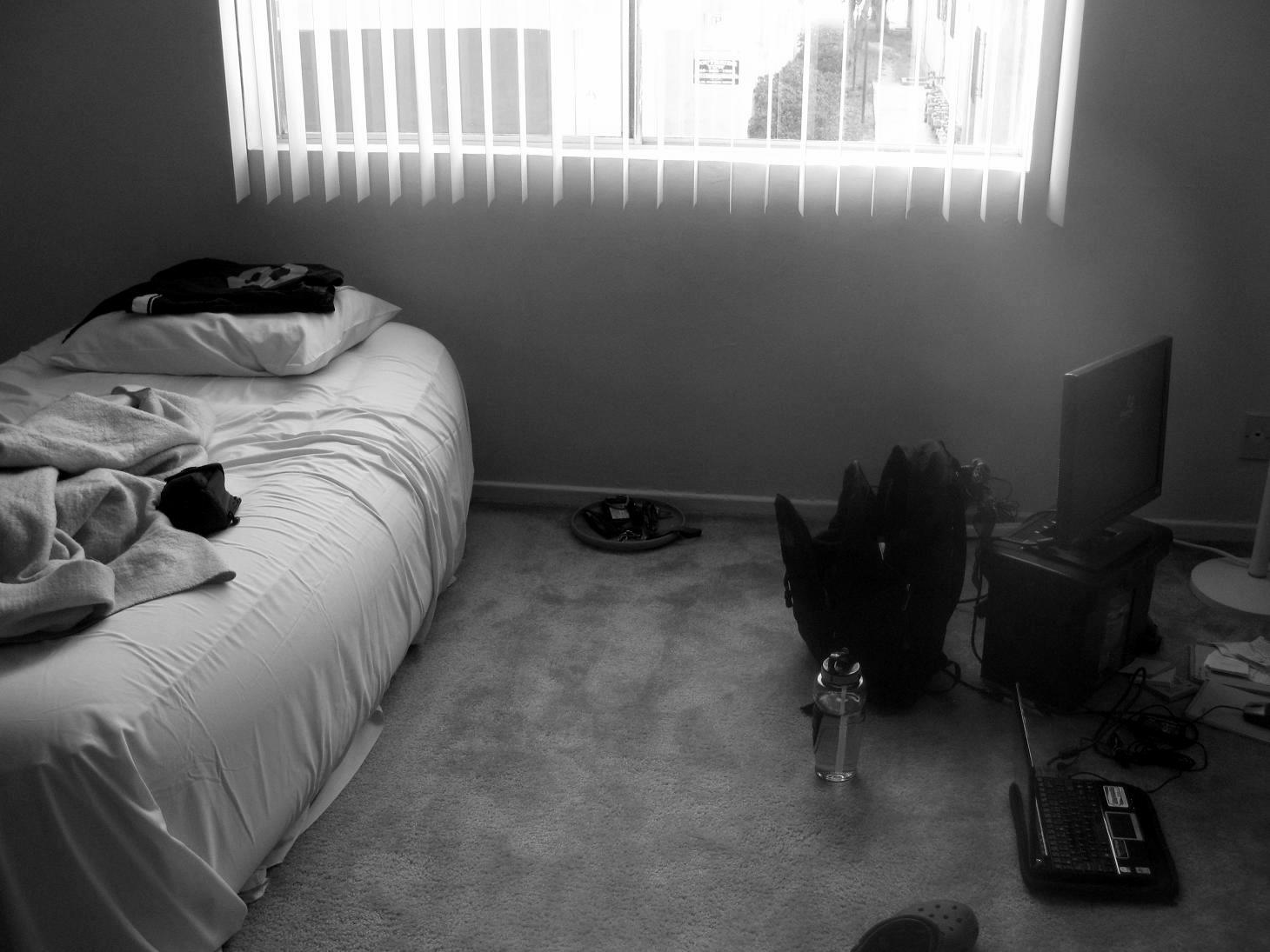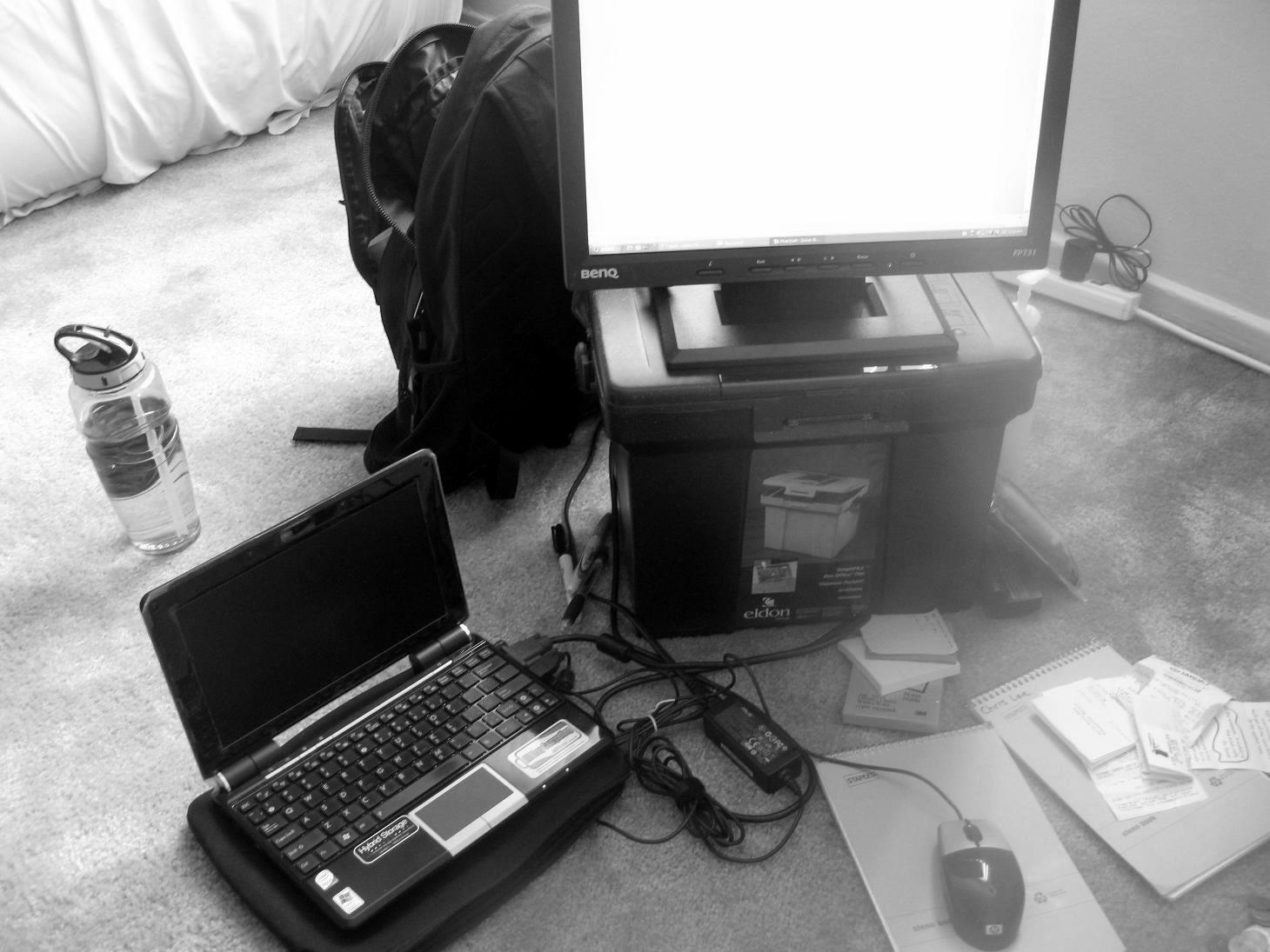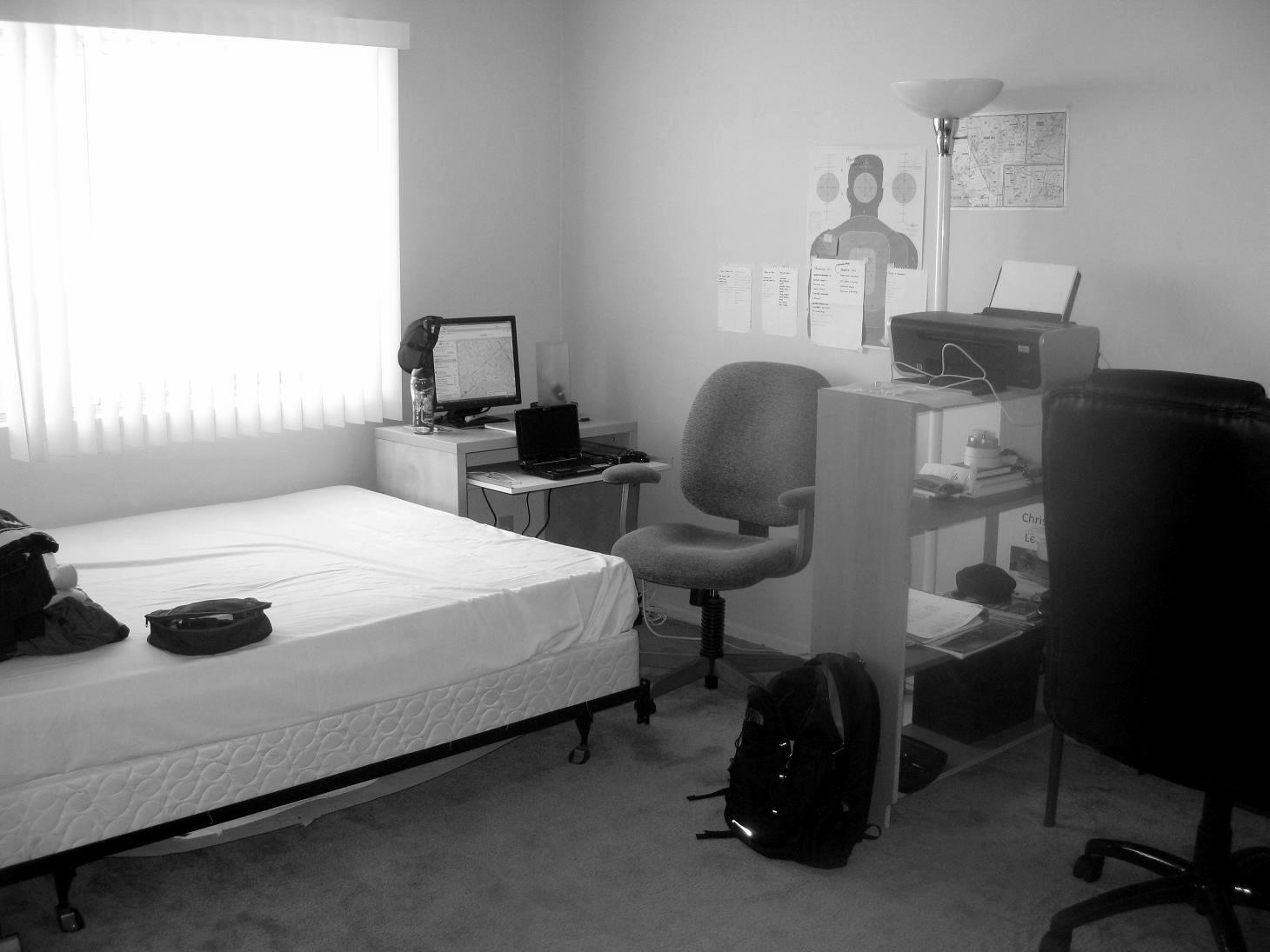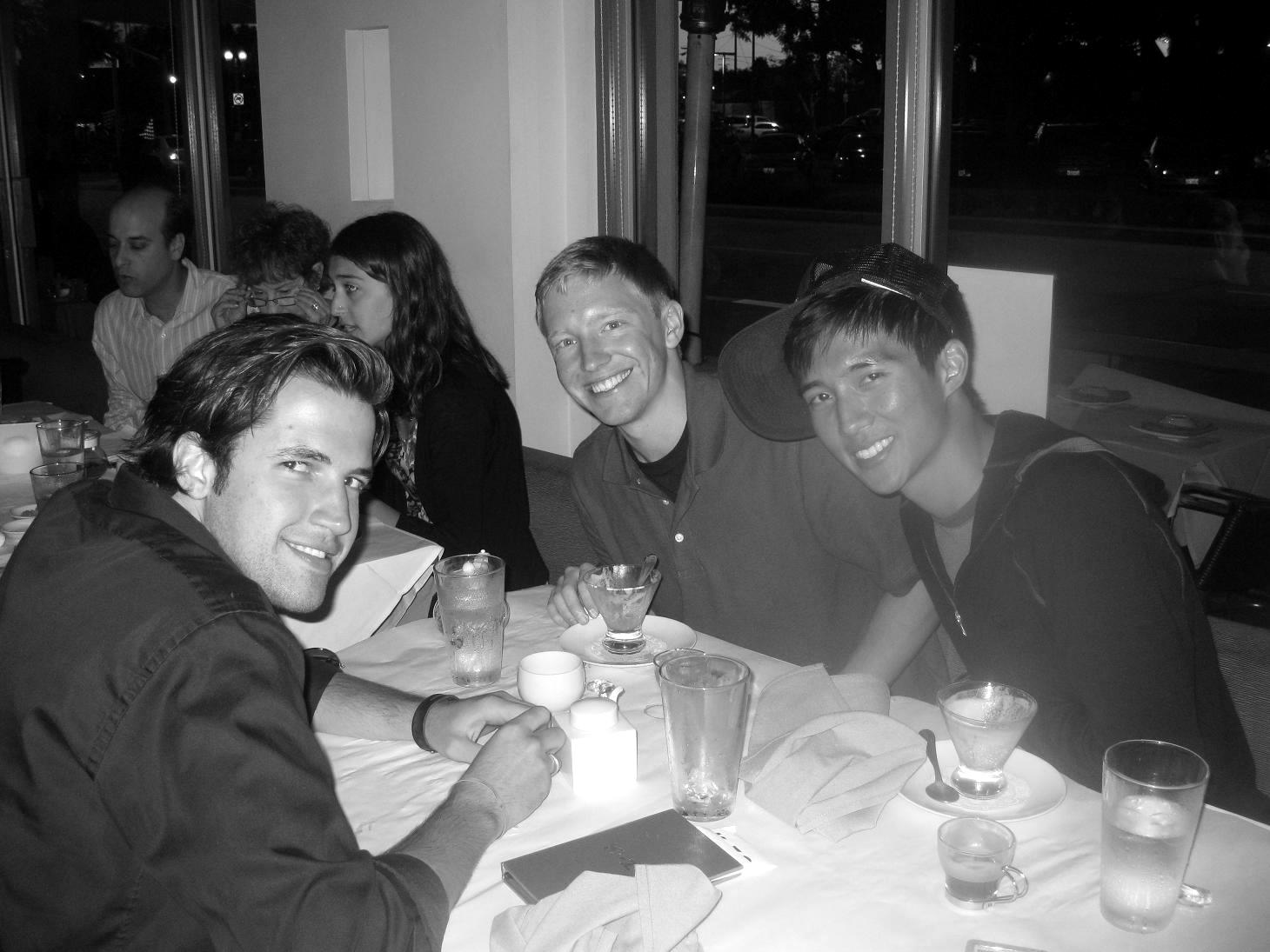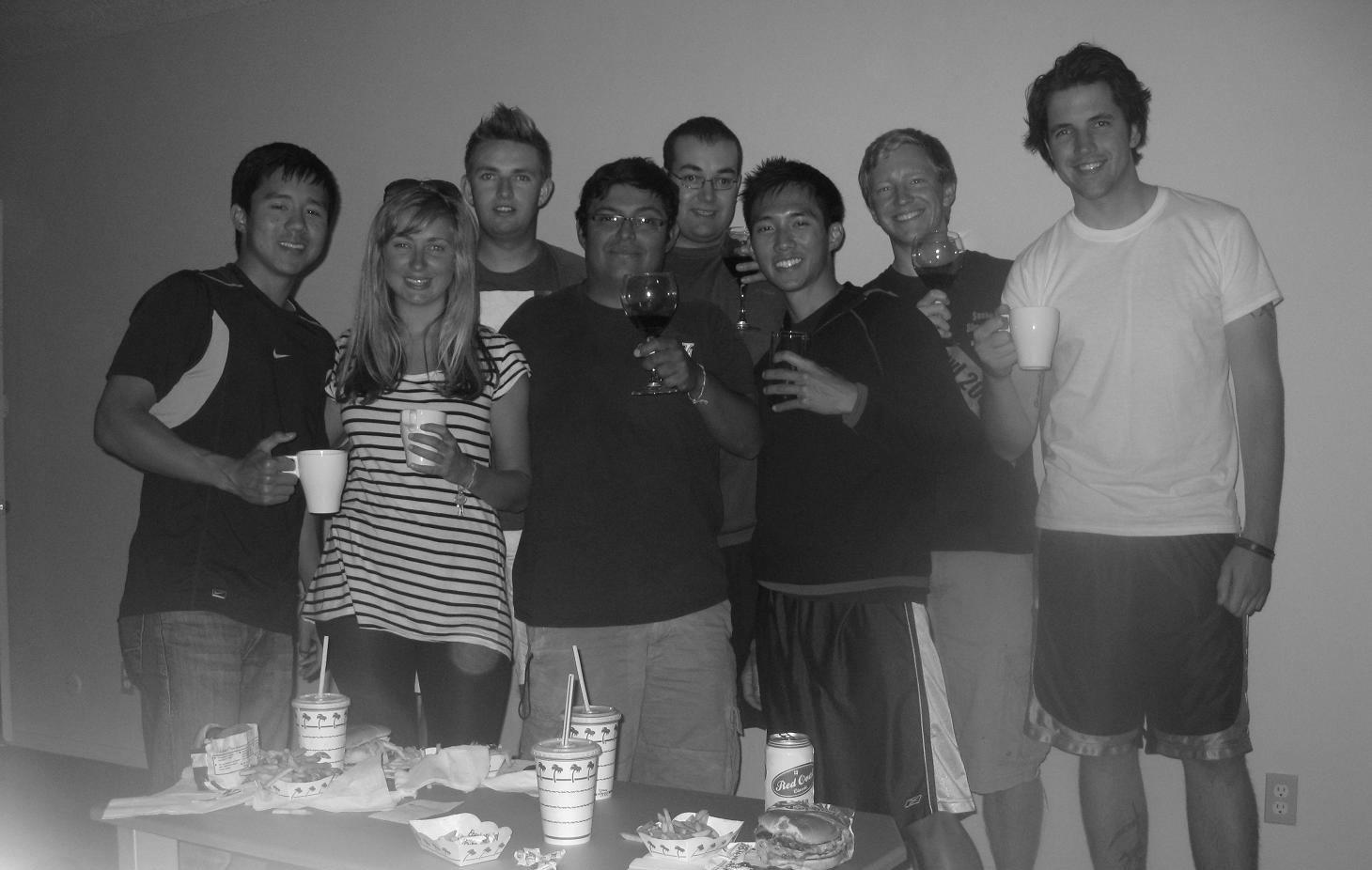We followed the GPS’ purple arrows into Culver City, our modern, corrupted version of Yellow Brick not even Gregory Maguire could dream up.
Teddy pointed out the window at the formidable white building, fortified behind a tall, black fence. It’d only be less inviting if the wrought-iron was composed of ivory tusks, pillaged from a majestic, prehistoric creature, and curved outwards.
“Look, there’s Sony Studios,” he said. Their message was clear: we might consider ourselves California residents – we might ride skateboards, eat avocado-topped pizza, and call Culver City home – but we were still outsiders. And don’t forget it.
That’s how we’re going to get our start, I said. What we’re going to do is hop that fence…
“Sneak into the Sony lot, and get jobs as production assistants,” Teddy finished. “That would sound good when they write books about us.”
He turned back, watched the building fade. “How sweet would it be to work there, though, huh? To work right down the street from where we lived? We’d beat the whole, ‘commuting around Los Angeles’ problem.”
This is a Recap
One month after that discussion.
One month after everything came to a head: hundreds of conversations about leaving home, 3,000 miles across the states, a few bags of clothes, a couple of skateboards, and no apartment, no job, no plan to speak of later… to examine what we built, and how to effectively replicate and improve on those efforts.
The Apartment
Teddy looked at five or six apartments before settling on the current location. The search spanned across Venice, Los Feliz, Echo Park, and Long Beach. It was halfway through his month sublet he found the apartment in Culver City:
2 Bedroom, 2 Bath, 2 Balconies, kitchen, living area, at the end of a cul de sac, minutes from downtown Culver City.
Costs of furnishing:
- Three sofas – one on the balcony: $25
- Carpet: $2
- Dining Room Table: $10
- Dining Room Chairs (4): $15
- Bar Stools (2): $45
- Entertainment center: free
- Television: free
Save for the bar stools – everything was purchased or picked up for free on Craigslist.
Use Craigslist at the start, when you’re of limited or no financial means.
Transport is the challenge – the largest vehicle available was the 2006 Corolla, which you couldn’t use for sofas, tables, etc.
The ideal solution is moving to Los Angeles with a pick-up truck. The second best is borrowing a friend’s. The last resort, the awful solution, is to rent a U-Haul for the day, and camp Craigslist, hoping to pick up everything needed in a single day. This is not a good plan.
It’s barely a mediocre one.
Some ideas to make it work anyway:
- Do it on Saturday or Sunday. More people have day offs, more likely to post on Craigslist, and more likely to be home.
- Reserve the U-Haul a few days in advance. Set yourself up with an all-day rental, so you can drop it back off the following day. As long as you drop-off before the store officially opens, there should be no extra charge. Ask.
- Camp Craigslist the night before. Try setting up definite appointments for the next day. It’s not easy – most free stuff is first come, first serve.
- Know exactly what you need, and its priority. What’s the most important item? Have a plan, in case you must make a choice between two pieces of furniture.
- Start early. Camp Craigslist first thing in the morning, and stay on it. If you have an internet-ready phone, keep refreshing the browser in the car, and call prospects as soon as possible. Free moves quickly.
- Have cash. Don’t stop at the bank.
- Know how much you’re willing to spend on any piece of furniture. With only one day to acquire everything, you’re not in a strong position to haggle.
- Use a GPS.
Hope you get lucky, and everything you need becomes available. Going through the process again would be frustrating and time-consuming.
Do you have to get lucky to get everything on one shot?
Yes. But better lucky than good.
Renting the U-Haul and buying gas, split three ways, cost $37 each.
The Bedroom
There’s something Bohemian about grinding out the craft, perched on the floor, readjusting butt cheeks every ten minutes to beat back the pins and needles.
Teddy walked into the room Eric and I shared. He watched Eric type at his fold-out table, seated in his leather executive-style chair. Three feet to his left, and three feet closer to the ground, I typed on my laptop. My monitor squatted atop of a filing box – a makeshift desk.
Teddy caught my eye. “That’s the struggle I want to see,” he said admiringly.
Romantic struggle or not – at some point, you want a desk. Your neck gets tired, your eyes get tired, and your butt, that gets tired, too.
You want a desk and a chair and a bed – not the floor and an under-inflated air mattress.
Costs of Furnishing
- Desk: $50
- Chair: $50
- Mattress: $50
- Bed Springs: Free
- Lamp: Free
- Bookshelf: Free
Individual cost to furnish the apartment, including U-haul costs: ~$200
Employment
Major question number two, immediately following “Where are you going to live?” is “What are you going to do [for work?]” A fair question.
We three each started the endeavor with different amounts of money banked, but by no means would it last forever. Our respective reserves would sustain us anywhere from three months to a year. We all came out to start careers in the entertainment business, but with different end goals, different tolerances for risk, and different relationships with money and work.
By the end of the first month, however, everyone found employment. Everyone took a different route, one fitting his plan for long-term success, and reflective of his personality:
Teddy
Teddy stood up in disgust after an episode of Entourage. “That show’s so unrealistic,” he said.
Which part? The gaggles of beautiful women trolling in and out of their lives? The rapid ascent towards fame? The…
“The Agency. No one’s wearing headphones. In an agency, everyone’s always got headphones attached to their face, because that’s all they do. They’re on the phone all the time. And everyone’s gorgeous on the show. In an agency all the assistants are getting fat because they spend all day at their computers, talking on the phone…”
Teddy started his entertainment career the same way he started furnishing his apartment: Craigslist. He took several unpaid production assistant gigs, mostly graveyard shifts an hour drive away. During the day, he slept, explored Venice Beach, and harassed his current roommate about getting him an internship at the talent agency where he worked.
“That’s probably why Rob finally made sure I got an interview,” Teddy said. “He got sick of hearing me complain all the time. Figured it was the only way to shut me up.”
So while the experience was the only thing Teddy got out of his free work as a production assistant, the harassment paid dividends. He interviewed for an unpaid internship with Principato-Young Entertainment.
“The manager slammed a stack of resumes on his desk. Told me every single one of these people was applying for the same position; why hire me?” he reminisced, after the interview. “I don’t really remember what I told him. I think I said I was a worker, and I would do anything they needed.”
He started a week later – nine to eleven hours a day, five days a week; reading coverage, office work, and shadowing assistants. His salary consists of lunch and all the Red Bull he can drink. Plus the one can of Red Bull he takes home with him, at the end of the day.
“For recycling,” he explained. “It’s five cents a can. At the end of the month, I might make two dollars from this internship.”
Though he won’t admit it, he’s gotten a great deal more than two dollars in compensation. The assistants liked his work. They’ve put his resume in contention for other positions (some paid, some not) – positions he’d have no shot at by himself, against others with far more experience in Hollywood. He most recently interviewed for a paid assistant position with Creative Management – after only a month in the industry.
“They all say the same thing when they look at my resume: ‘How’d you start working with Principato-Young? You have no experience in Hollywood, or in the entertainment business.’” He laughs. “Then I explain – again – how I got it.”
Before that, he interviewed for an internship position with a branch of Sony – Laurence Mark Productions. Their office is located behind a black gate in downtown Culver City – the same gate we passed on our first trip into the city.
He turned it down.
Eric
Months ago, Eric shared this story about his convocation:
“At the Liberal Arts and Sciences Honors Convocation, upon calling each person to walk across the stage, the speaker gave a mini one-sentence bio about what they were doing next.
It went something like this:
Med School, Med School, plans to attend Med School, Law School, Grad School, Grad School, plans to attend Med School, teach English abroad, Med School, Law School, teach English abroad, Hollywood, Med School or Law School, plans to attend Law School, Law School, plans to attend school in the future, Med School…
As they say in Sesame Street: which of these things is not like the others?
Hollywood even got a little snicker from the crowd.”
A few months after sharing this anecdote, Eric settled into the apartment in Culver City. He set about finishing a script and finding his “in” into the entertainment business – damn the costs.
“I’ve got enough money to get me by in Los Angeles, for a year, without having to work,” he explained. “So I’m going to focus on writing, and working where I can. For free, or whatever, it doesn’t matter, as long as I’m working in the industry. That’s what I came out here for.”
That attitude – and one or two phone calls from a friend working for MGM – landed him two internship offers before the first month finished.
One with Village Roadshow Pictures, and another with – and of course, the turn – Sony Pictures.
Right down the street.
He accepted both.
Me
The plan: toe in the water.
The objective: sustainability. Restaurant employment that’d cover expenses at a minimum number of hours put in. Requires calculating expenses per month.
I focused my search.
- Specializing refines your efforts. If you’re fortunate to have knowledge of a specific cuisine, narrow your search to this cuisine type. Start off with specialization, then expand your search – the basic skills of serving are universal – it’s specialist knowledge that stands out.
My focus, from most specific to general: Japanese cuisine, Asian cuisine, fine dining. - Location. The closer, the better; walking distance is ideal. Pick a certain radius, and don’t consider restaurants beyond this field. Commuting in Los Angeles is exactly as terrible as others say. As one friend put it, “Expect grid lock during rush hour, but don’t expect clear roads any time.”
My focus: Culver City, then within a three mile radius (West Hollywood, Santa Monica, etc.)
Here’s how I went about it:
I started with Craigslist.
Every restaurant that fit the above criteria, an e-mail and resume was sent.
Below is a draft of the e-mail:
“To [Restaurant] Management
My name is [Name], and I’m replying to the posting on Craigslist for servers.
I served at a high-end Japanese restaurant in New York. I helped open that restaurant [link to the restaurant] and served for two years before moving to Los Angeles.Prior to that, I have eight years experience serving Asian cuisine.
My Asian-cuisine background gives me the experience and foundation to share what [Restaurant] offers to the greater Los Angeles area. [Insert personalized strength/weakness here. If weakness, include…] However I don’t see this as a weakness – I see it as an opportunity to learn and renew my enthusiasm for [type of food] cuisine.
I work hard. I work fast. I believe strong communication and awareness of your surroundings make the difference in this industry.
Below is the link to my portfolio and my traditional resume.
[Portfolio Link, Resume]Preferred method of contact is by phone: [phone number]. Or you can reach me at this e-mail.
Thanks for your time. I hope we have the opportunity to work together.
Sincerely,
[Name]”
A form of this e-mail was sent to four Asian-cuisine restaurants: Latin-Japanese fusion, a modern Japanese, a Korean BBQ, and an Asian/Chinese fine dining. The initial draft took twenty minutes. Afterwards, each e-mail took five to ten minutes to personalize.
Next, I used Google Maps and started with the shoe leather. The name and address of every Japanese restaurant in Culver City was recorded, and website researched (to get a feel for the restaurant.) Then, plans made to eat lunch at every one, and after the meal, ask if they were hiring, and name drop (not resume drop.)
I began with the second “best fit” restaurant – to practice my pitch for the first “best fit.” Asked if either were hiring, both said “no,” and I left my information anyway. No resume drop.
On a whim, printed a resume to drop at a Thai restaurant – solely because they were down the street. The manager said they weren’t hiring – dropped a resume anyway, circling pertinent employment history.
On Day Three, received a call to interview for a serving position at the modern Japanese restaurant, located in Santa Monica. Interviewed and hired the next day, with training to commence the day after. Stopped actively searching for work at this point.
Five days later, received a call from the local Thai restaurant, asking to come train. I rearranged my schedule to work/train at both restaurants.
After two training days, decided to drop the restaurant in Santa Monica. The local Thai restaurant was too convenient to pass on, despite belief the Japanese restaurant would garner better pay.
The Scorecard:
- Restaurants applied to: 7
- Restaurants applied on Craigslist: 4
- Restaurants I dined with first, then dropped name: 2
- Physical resumes dropped: 1
- Days spent unemployed: 4
- Serving positions acquired: 2
Lessons learned?
- Japanese restaurants in the area are Japanese-owned, most with Japanese sushi chefs. Directly contradictory to New York/New Jersey area, where many are Chinese owned, with Chinese sushi chefs. Knowledge of any Chinese dialect has proven to be of zero advantage.
- Dropped the “secured” job too quickly. Would suggest holding onto the definite gig longer than two training days with the other restaurant. The fact it worked out has a great deal to do with luck, and little with specific action on my part.
- It’s doubtful the portfolio created prior to moving out to Los Angeles helped my cause, or made me stand out, in any significant way. Far more useful: specialization, hustle, open availability, luck.
Summary
The satisfaction doesn’t come from the accomplishments of this past month. It comes from seeing how what appeared to be a huge, arduous task can be accomplished: with no special skills, intelligence, or talents. Just hustle, shoe leather, and yes, luck.
Satisfaction comes from knowing – regardless of how things actually turned out – that you were ready for the struggle. You were prepared to slum it in a dingy studio flat, sharing a single bedroom and bathroom, where you could piss and butter toast at the same time (not with the piss.)
And if things worked out better than you imagined, if you got lucky… who are you to complain? You can only enjoy it while you can, knowing that “this too, shall pass.”
###
Photo Credit: VolunteerMatch.org

